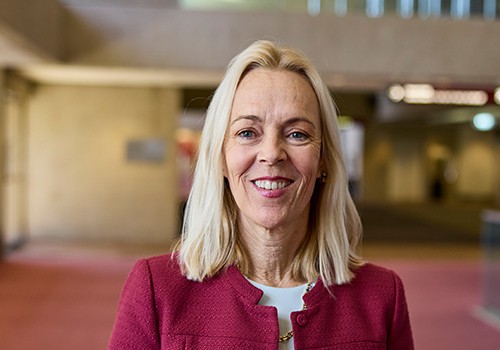Using nutrition science to help people eat better

By Laureate Professor Clare Collins AO
As a Laureate Professor in Nutrition and Dietetics, improving people’s nutrition-related health and well-being is my goal. My research focuses on distilling the scientific findings from nutrition research into programs that support people to eat more healthily.
It’s a complex area, so I’m particularly passionate about communicating practical information that helps people improve diet quality over time. My team developed the No Money No Time (NMNT) website as a resource to specifically address the challenges of a limited food budget and being time-poor. It has loads of short read articles on nutrition science and breaks down some of the diet fads, as well as a self-assessment, healthy eating quiz, recipes, menu plans and free e-books. It offers a fast answer to that recurring question ‘what’s to eat for dinner?’ Resources like these are extremely valuable because people using NMNT have told us that they do want to eat more healthily, but they often just don’t know where to start. Another great resource is The Australian Guide to Healthy Eating. If somehow everyone in Australia instantly ate just like these recommendations then the Australian Institute for Health and Welfare estimated the national burden of disease due to heart disease would drop by 50%, and Type 2 Diabetes by 25%. These statistics are stark and highlight the potential power of eating healthily as a whole community.
Nutrition science is important and deals with risk of chronic diseases that directly threaten to reduce quality of life and life expectancy for the next generation of Queensland children. With Health and Wellbeing Queensland already working hard to address childhood obesity, I know that nutrition science can inform strategies to help people eat more healthily, and ultimately live longer in good health.

NHMRC Leadership Research Fellow and Director Food and Nutrition Research Program, University of Newcastle and Hunter Medical Research Institute Laureate Professor Clare Collins AO is an NHMRC Leadership Research Fellow (L3) and received the 2021 NHMRC Elizabeth Blackburn Investigator Grant Award (Leadership in Clinical Medicine and Science). She is Director of the Hunter Medical Research Institute Research Program in Food and Nutrition. Her research focuses on personalised nutrition technologies and programs evaluating impact on diet-related health in chronic disease and across life stages.


